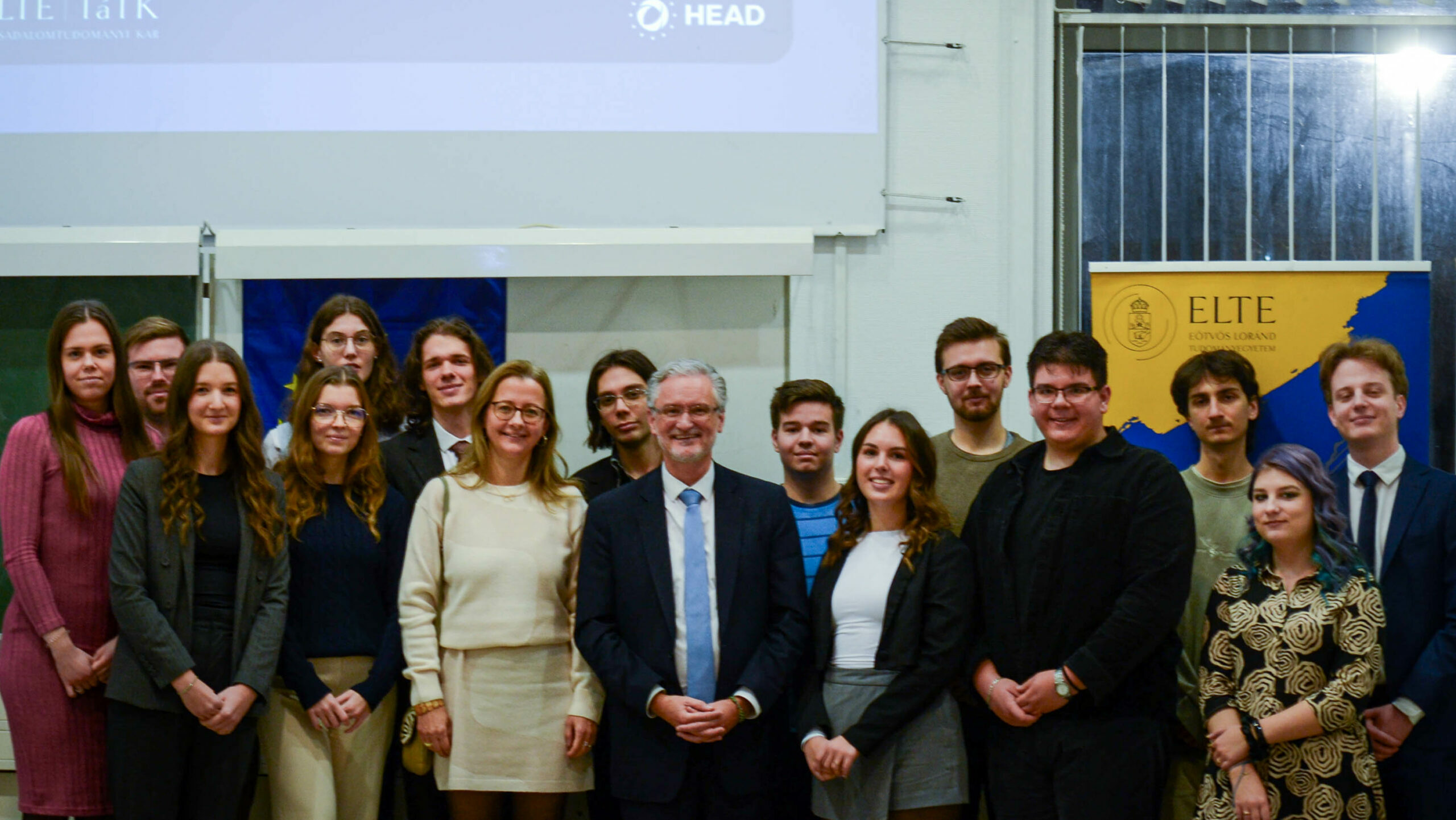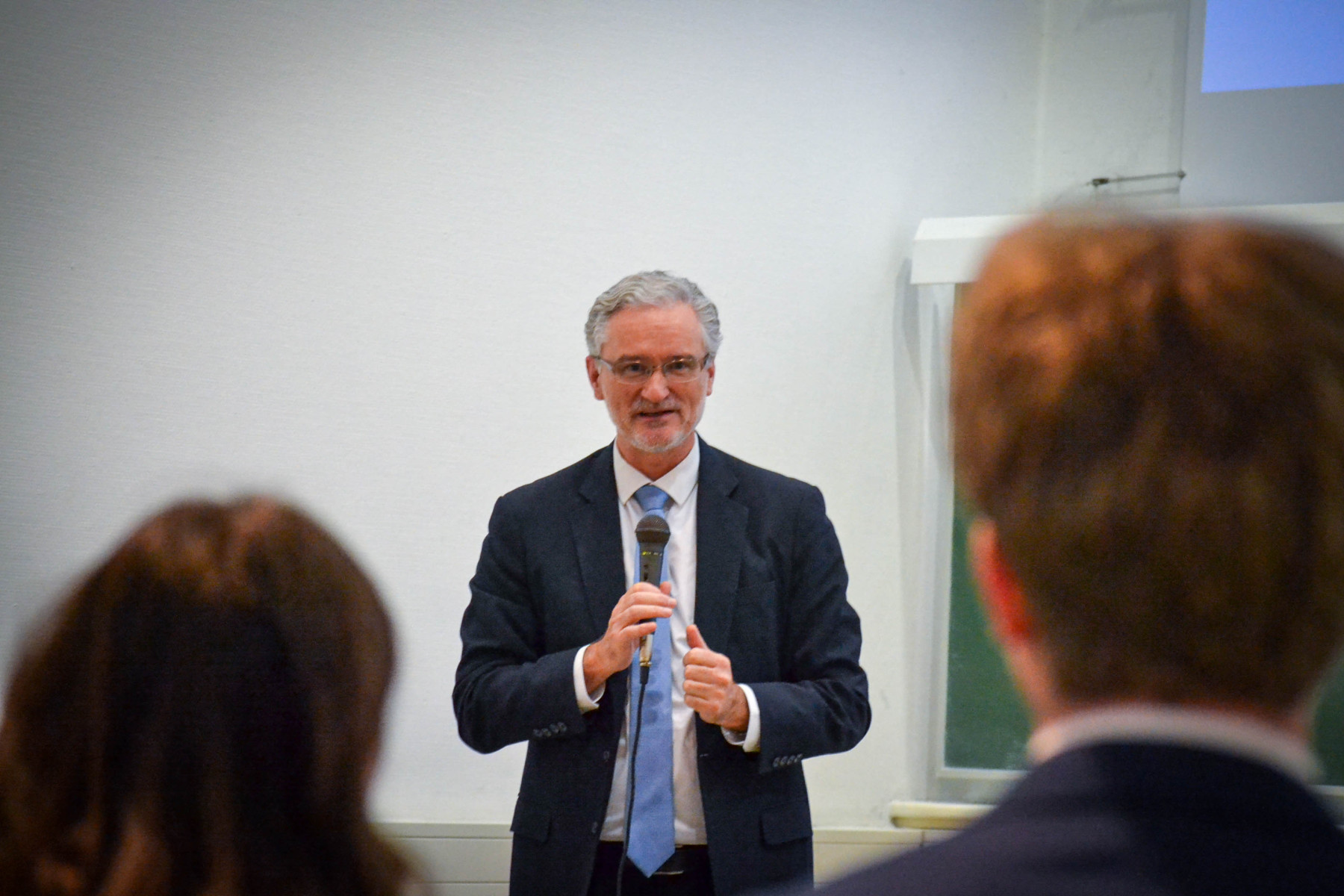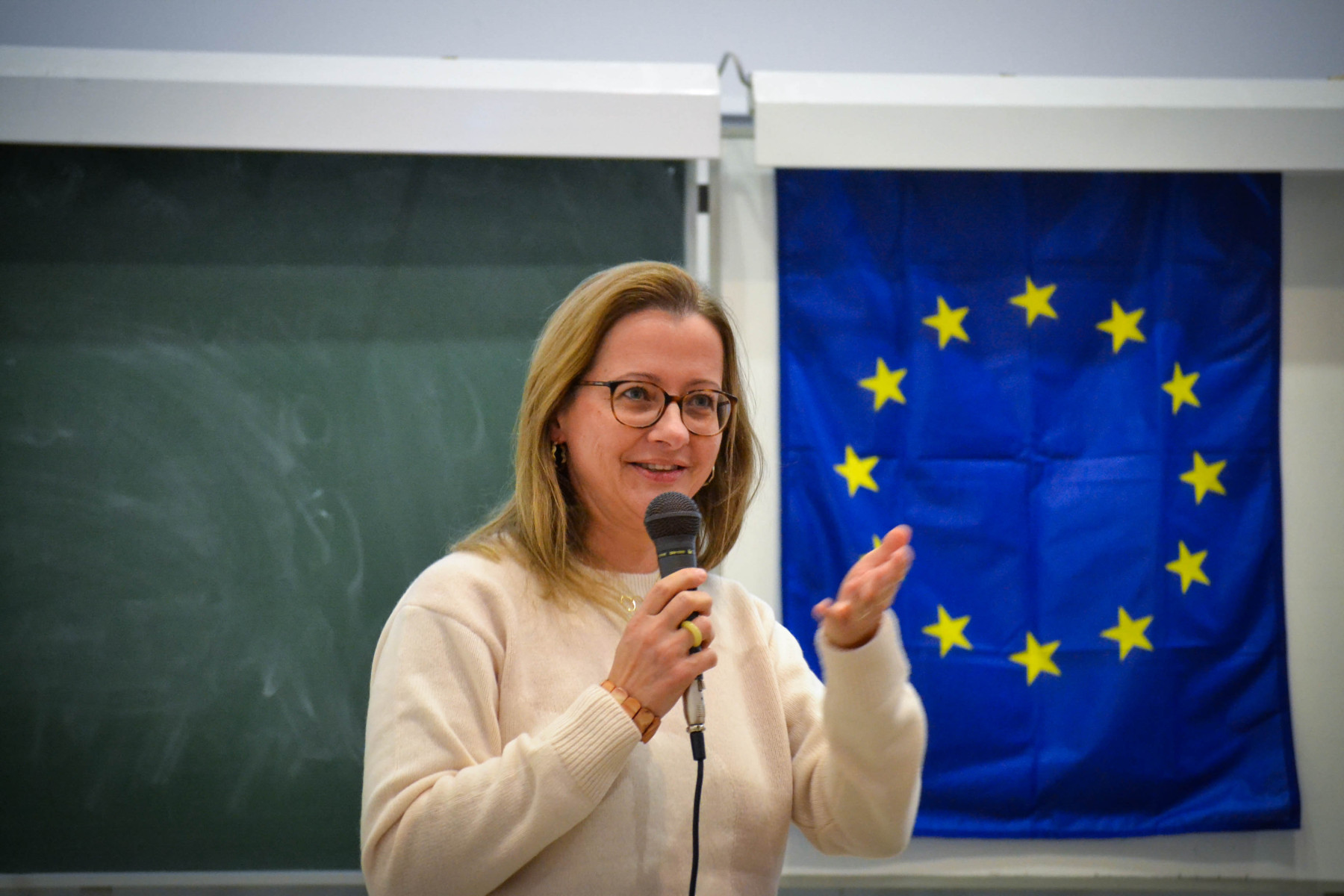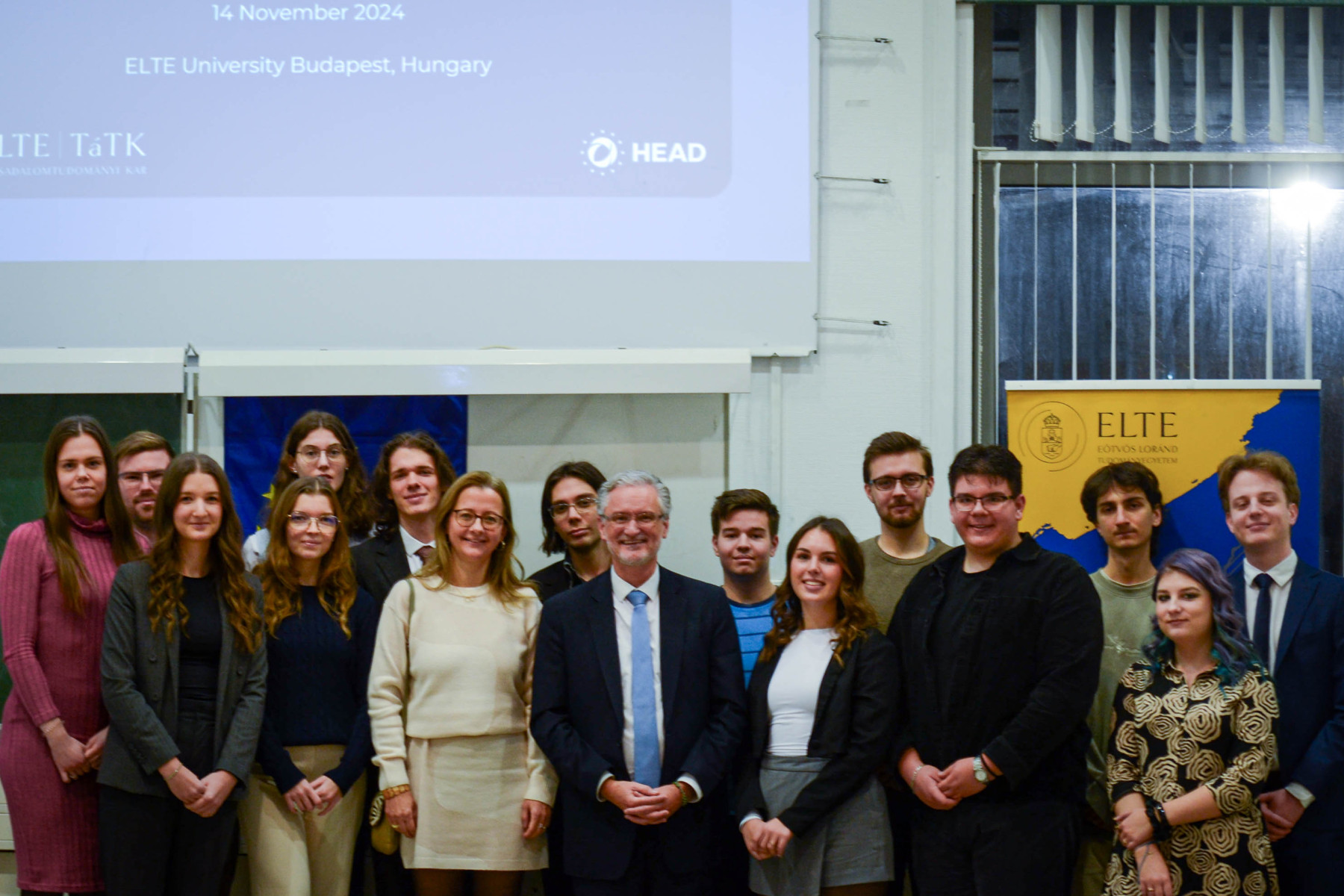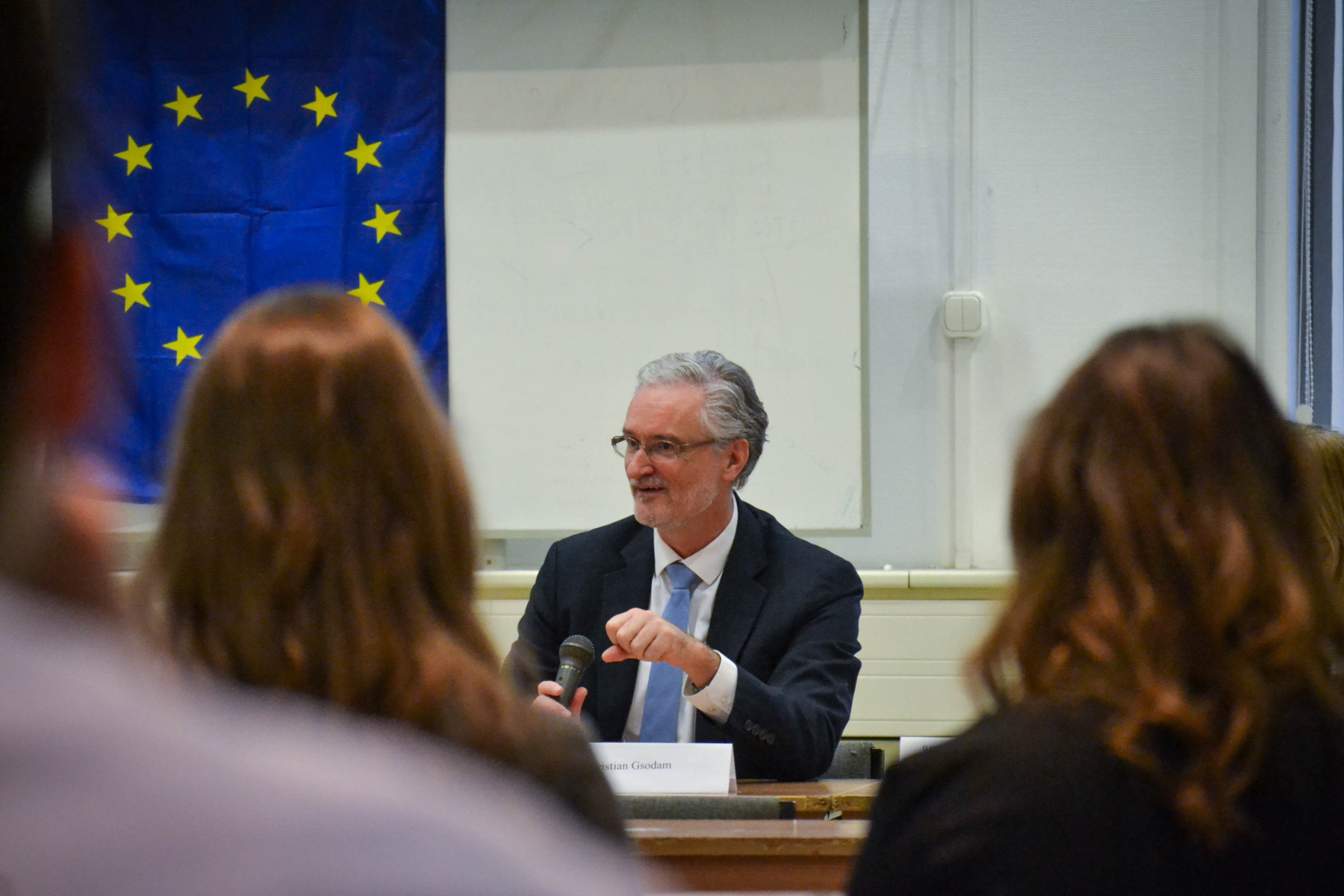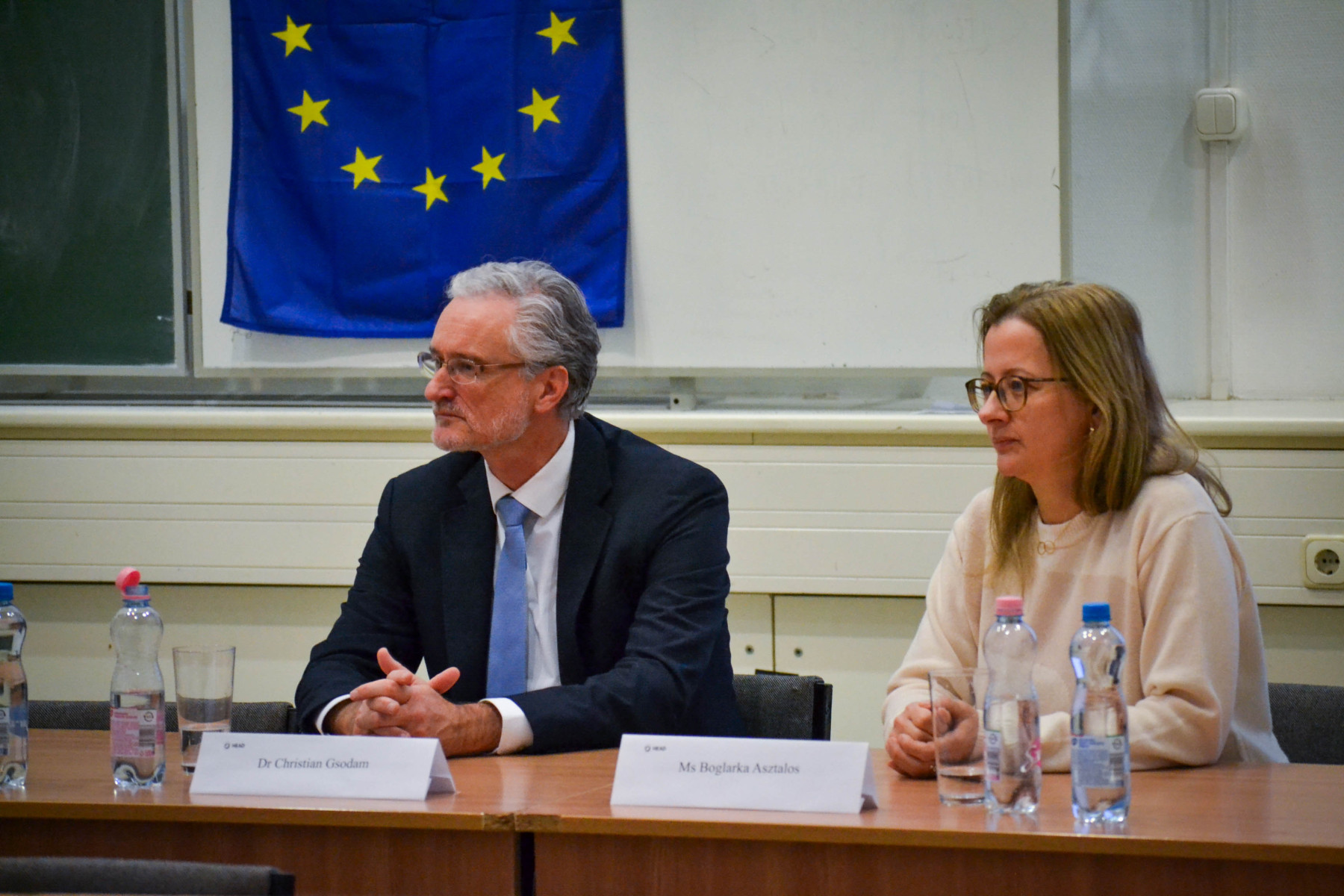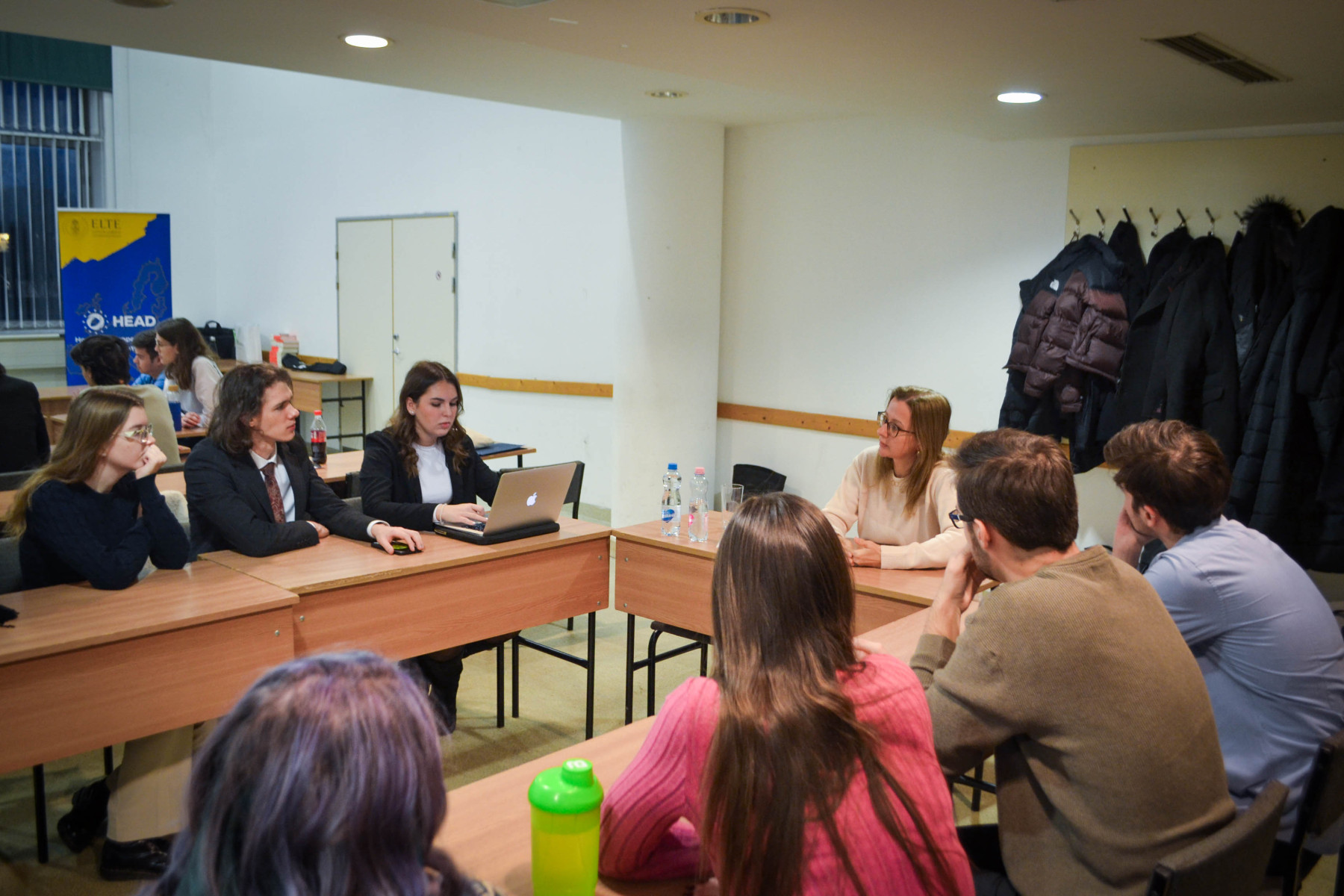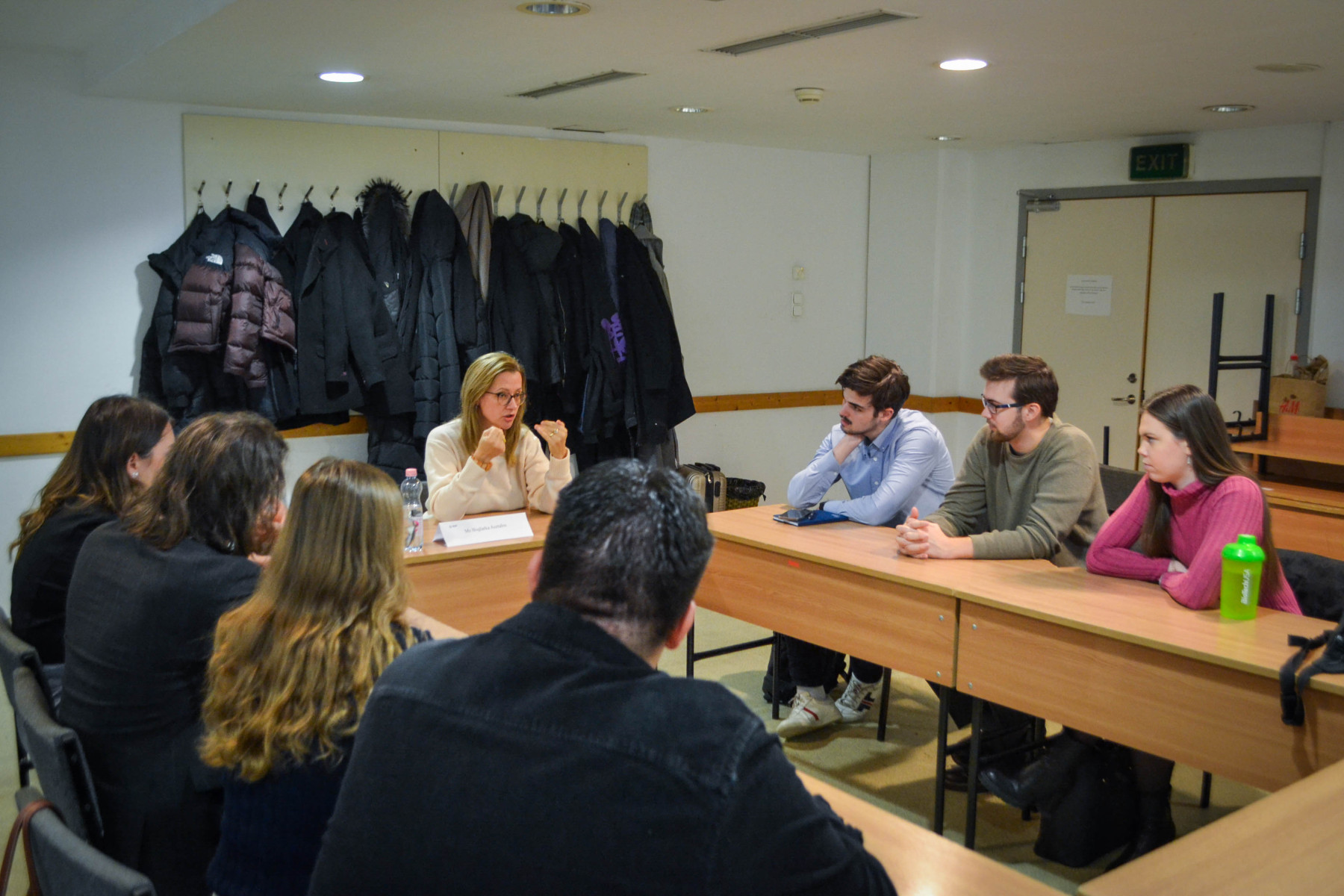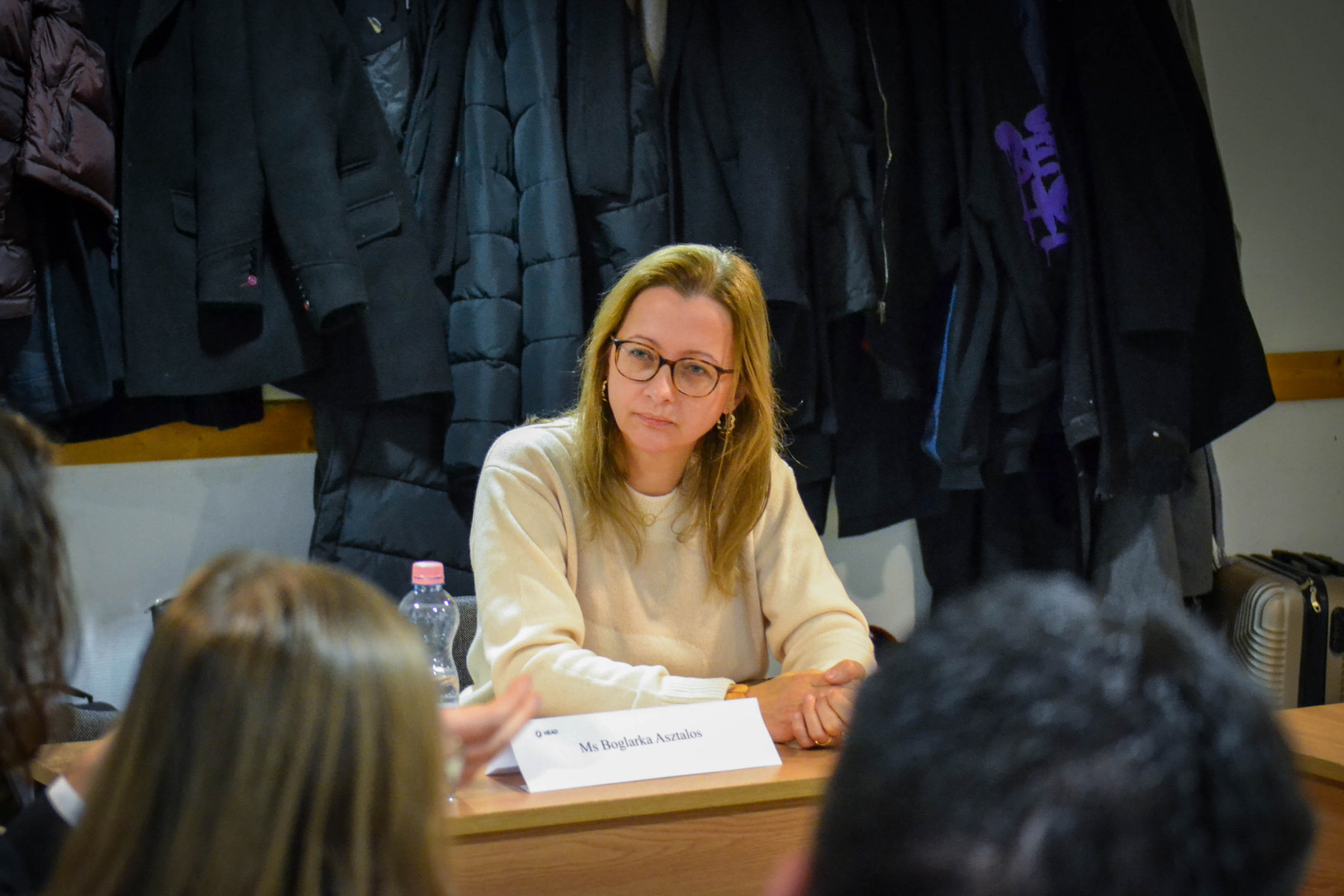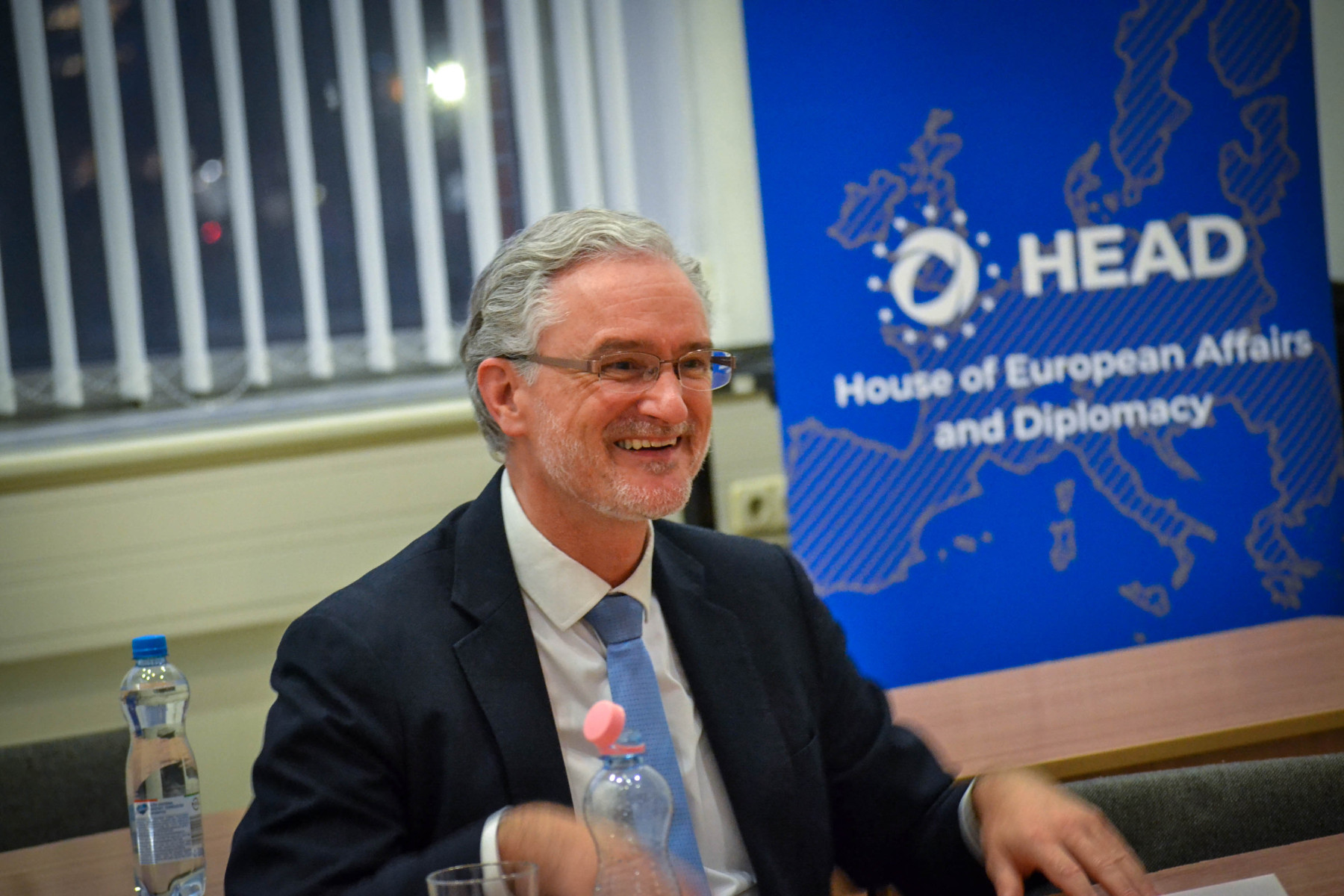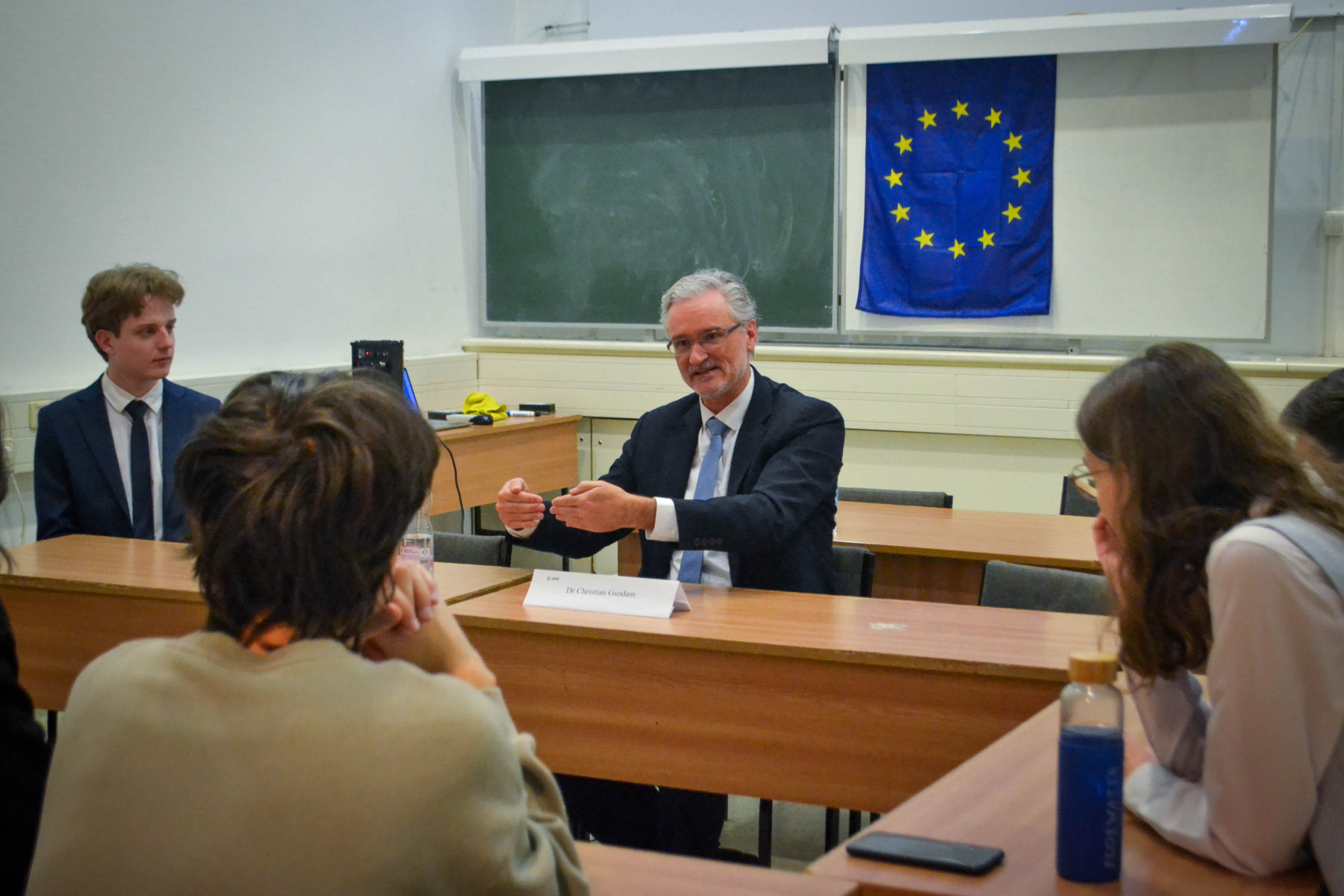14 October 2024, Budapest, Eötvös Loránd University
Event summary
On 14 October 2024, the European Future Talks 2024 took place at Eötvös Loránd University, in collaboration with the House of European Affairs and Diplomacy – ELTE student organization. The event offered students a unique opportunity to engage in a citizen dialogue, featuring insights from distinguished speakers: Dr. Christian Gsodam, a Strategic Communication and Foresight Advisor with the European External Action Service, and Ms. Boglárka Asztalos, a representative of the General Secretariat of the European Committee of the Regions.
Through their presentations, Dr. Gsodam and Ms. Asztalos provided participants with a deeper understanding of the roles of the European External Action Service and the Committee of the Regions, sparking thoughtful discussions on the future of European democracy.
The event was structured around two World Café discussions. In the first session, students engaged with Ms. Asztalos on the local and regional dimensions of European democracy. Key questions explored included: What works well in democracy at the regional and local levels? And, what decisions should be taken by local authorities? Ms. Asztalos elaborated on the structure and functioning of the Committee of the Regions, the significance of the Interreg Europe Conference, and the role of interest representation bodies at the regional level. She also touched on the challenges of direct EU funding, highlighting the need to improve small municipalities‘ capabilities in navigating EU tenders.
In the second discussion, Dr. Gsodam guided students through a conversation about the intersection of European democracy and the EU’s foreign policy. The group explored contemporary issues such as the US presidential elections, the implications of illiberal democracies and authoritarian regimes, and the strategic importance of the European Union for its member states. Dr. Gsodam underscored the significance of legal instruments to facilitate cooperation across borders and the potential impact of the Western Balkans’ EU accession. He also discussed the geopolitical influence of Russia and China and the evolving role of NATO—including the debate surrounding the creation of a European Union army.
The event sparked meaningful conversations, helping to shape our collective understanding of the evolving political landscape of Europe, and the importance of collaboration, democracy, and international cooperation in securing a united future for the European Union.
Photos
